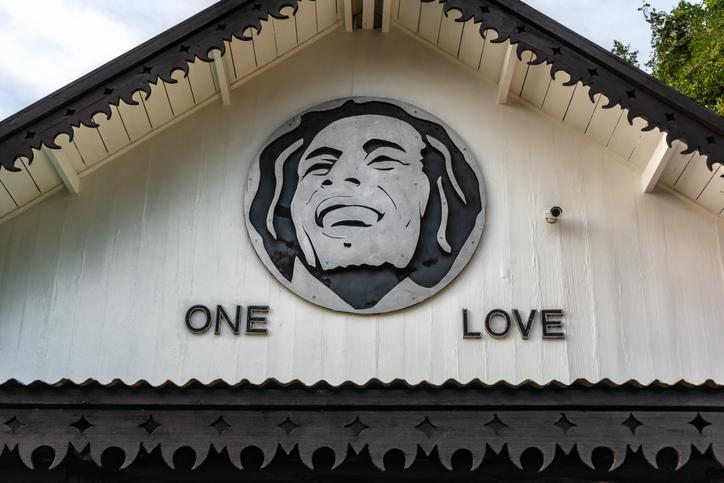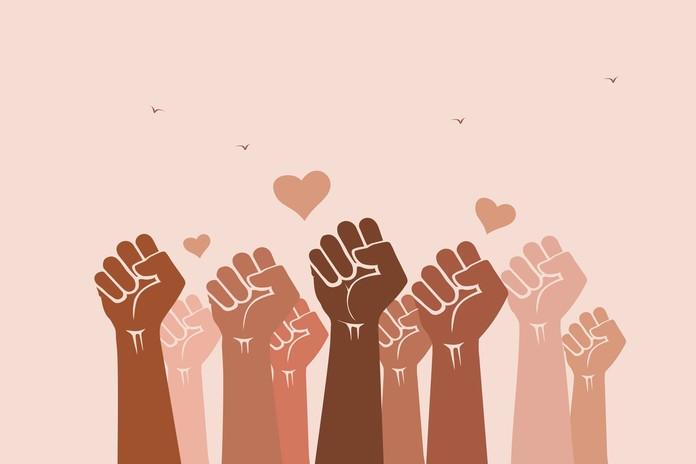
What Bob Marley can teach us about inclusive pedagogy
As One Love hits cinemas, educators can take inspiration from the life of Bob Marley to create a more inclusive educational experience. Lucy Gill-Simmen shows how

You may also like
Popular resources
The recently released Bob Marley biopic One Love encapsulates the musician’s vision for unity, peace and overcoming systems of oppression, represented through the powerful messages of his music. Educators, aiming to apply principles of inclusive pedagogy into teaching practices, can learn from these themes of inclusivity and community.
Inclusive pedagogy refers to teaching approaches tailored to engage and support diverse students, especially those from groups that have been historically excluded or underserved in education. This involves paying attention to aspects of identity such as race, gender, class and sexual orientation, and how they might impact learning. An inclusive pedagogue reflects on possible biases in their curricula, adapts teaching strategies to enable multidimensional learning for students from all backgrounds and purposefully builds a classroom culture where students feel respected and represented, and have equal opportunities to excel.
Bridge perspectives for self-reflection
One Love showcases Bob Marley’s life and work in a way that reflects many dimensions of identity and the experiences of marginalised groups. As a mixed-race Jamaican raised in poverty, who rose to become a global artistic phenomenon, Marley’s worldview bridged multiple perspectives. One Love’s exploration of his upbringing, activism and musical genius provides several lessons for self-reflection on the part of educators about inclusion.
- What will your anti-racist university look like?
- Celebrate Black History Year and tackle racial inequality all year long
- Action to improve diversity and inclusion for Black students and staff
First, it surfaces the lasting impacts of intergenerational injustice and wrestles with burning questions of poverty, inequality and colourism in the post-colonial world. Engaging with these complex narratives fosters empathy across differences.
Second, revisiting Marley’s activism and risky stands against exploitation gives insight into principles of social justice and sacrifice for community good, and can empower students from all backgrounds to have the courage to stand up for their rights and make change in the world.
Third, discussing Marley’s passion for human rights and lobbying for equitable systems probes educators to examine their own university policies, values and curricula through an inclusion lens, asking: who feels excluded and why? What changes promote representation of all groups? How can we empower the disadvantaged?
Additionally, exploring Marley’s dense symbolism and references to Rastafarian culture in his music stresses intercultural competency. Educators ought to consistently push themselves to better understand the worldviews of cultural groups within classrooms in order to fully engage their strengths.
By engaging the stories of marginalised communities, we can encourage students to voice their own perspectives through storytelling, activities and classroom norms. This will make them feel secure, valued and inspired.
Nurture your students’ creative talents
At another level, focusing on Marley’s creative genius – which emerges from his identity – provides lessons about fostering the intellect of students who fall outside a perceived dominant culture. Teachers must actively nurture the talents of black, immigrant, queer or working-class students by removing assumptions about their abilities and interests. Instead, provide access to opportunities that match their passions. Marley’s own unconventional path to fame highlights the need to champion each student’s purpose, not constrain them by conventional scripts or generic pedagogies.
Ultimately, the universal appeal of Marley’s One Love anthem underscores a shared humanity despite difference. Well-facilitated classroom dialogues about dreams and struggles could powerfully cultivate intergroup empathy, relationship-building and inspiration, breaking down barriers that oppress people based on race, background, gender or orientation. There are rich lessons here for inclusive pedagogical practice that mirror Marley’s lyrics to “join together and feel all right”, as an educational community striving for equitable learning. Let’s reflect on narratives such as Marley’s and ask how to walk the talk of a truly inclusive educational experience.
Since business schools are instrumental in preparing the next generation of leaders who will guide organisations in an increasingly diverse and global business environment, Marley’s messages around inclusivity, equality, justice and overcoming oppression are critical for shaping ethical and culturally intelligent human beings capable of building fair, equitable and inclusive organisations.
Here are some examples of how business schools in particular could incorporate lessons from Bob Marley’s One Love into inclusive pedagogy practice:
- Show clips from the film during a module on organisational behaviour. Follow with small group discussions analysing how issues such as discrimination, diversity challenges or ethical workplace cultures are highlighted. Require students to self-reflect in written authentic assignments on the points that resonate for their own future leadership.
- Build a case study for use in HR or management modules exploring how lack of inclusion fuels high staff turnover, especially among minority ethnic groups. Support with data on UK business demographics. Encourage groups of students to develop comprehensive inclusion recruitment and retention strategies informed by film themes.
- Create a project for marketing students to develop campaigns that echo One Love’s celebration of humanity’s oneness while avoiding appropriation. Examine respectful representation and multicultural messaging. Evaluate student-developed slogans and visuals against such inclusion narratives.
- Develop a workshop module for students facilitating self-exploration of their own cultural assumptions and biases about diverse groups. Follow with perspective-taking activities where students provide their takes on the challenges faced by marginalised communities.
- Build case studies about activists from marginalised backgrounds who stood up boldly for justice like Marley did. Challenge students to evaluate change strategies and discuss dynamics of power, privilege and discrimination. Require reflective essays on leading change inclusively.
- Incorporate modules that cross Marley’s music and business successes. Explore the cultural intelligence needed to lead creatively across geographic and demographic frontiers. Link to the rules of fair trade and the ethical obligations successful global UK brands have to diverse suppliers and partners.
The reality of the UK’s multicultural classrooms and workplaces needs inclusive pedagogical approaches like those modelled in One Love. If business schools aim to develop leaders truly ready to guide 21st century organisations equitably and successfully, then inclusive education and anti-racist pedagogies are key – and Marley’s boundary-crossing influence offers inspiration.
Lucy Gill-Simmen is vice dean for education and student experience in the School of Business & Management at Royal Holloway, University of London.
If you would like advice and insight from academics and university staff delivered direct to your inbox each week, sign up for the Campus newsletter.

.jpg?itok=sefVbQ0A)
